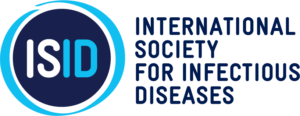[Source: Centre for Health Protection, Hong Kong PRC SAR, full text: (LINK).]
Joint investigation into suspected outbreak of respiratory disease in Sheung Shui
The Centre for Health Protection (CHP) of the Department of Health is today (November 26) conducting a joint investigation with the Agriculture, Fisheries and Conservation Department (AFCD) into a suspected outbreak of respiratory disease involving five AFCD staff working in the New Territories North Animal Management Centre (NTNAMC) in Sheung Shui. They were all males aged between 27 and 64 with onset of symptoms from November 6 to November 24.
The first case affected a 64-year-old man who presented with upper respiratory symptoms since November 6. He was admitted to a hospital in Australia since November 12.
The second case is a 55-year-old man. He developed chills, cough and sore throat since November 8 and fever, shortness of breath, headache and myalgia since November 19. He was admitted to Queen Mary Hospital (QMH) on November 22. His chest X-ray showed bilateral upper zone patchiness and the clinical diagnosis was pneumonia. He is now receiving care in the Intensive Care Unit of QMH in stable condition.
Respiratory and urine specimens taken from the 55-year-old patient at QMH tested by the hospital yielded negative results for influenza virus, respiratory syncytial virus (RSV) and Legionnaires' Disease, while test results for psittacosis and leptospirosis are pending. CHP's Public Health Laboratory Centre performed tests on the patient's respiratory specimens and it was negative for Novel Coronavirus associated with Severe Respiratory Disease.
The third case affected a 62-year-old man who developed bilateral red eyes on November 12, and was admitted to Alice Ho Miu Ling Nethersole Hospital on November 17 because of cough with blood-stained sputum, malaise, chills, rigors and sore throat. His condition was stable. The diagnosis was pneumonia. Preliminary laboratory testing for influenza virus, parainfluenza virus, RSV and adenovirus was negative.
The fourth case is a 27-year-old man. He developed fever, headache and malaise on November 14 and was admitted to Yan Chai Hospital on November 18. The diagnosis was pneumonia. He recovered after treatment and was discharged home on November 22 and his condition was stable.
The fifth case affected a 62-year old man who presented with cough, chills and rigor since November 24 and was admitted to Princess Margaret Hospital for further management on November 26. His condition is stable.
The home contacts of the patients are asymptomatic.
CHP staff conducted a site visit to NTNAMC today and provided health advice to the staff.
According to the information provided by AFCD, there is a batch of 16 seized parrots being kept in NTNAMC since October 20. Subsequently, three died and 10 were euthanised as precautionary measures. The health condition of the three surviving birds is being closely monitored.
The possibility of psittacosis outbreak among these staff is being actively investigated.
The investigation is underway.
The Centre for Health Protection (CHP) of the Department of Health is today (November 26) conducting a joint investigation with the Agriculture, Fisheries and Conservation Department (AFCD) into a suspected outbreak of respiratory disease involving five AFCD staff working in the New Territories North Animal Management Centre (NTNAMC) in Sheung Shui. They were all males aged between 27 and 64 with onset of symptoms from November 6 to November 24.
The first case affected a 64-year-old man who presented with upper respiratory symptoms since November 6. He was admitted to a hospital in Australia since November 12.
The second case is a 55-year-old man. He developed chills, cough and sore throat since November 8 and fever, shortness of breath, headache and myalgia since November 19. He was admitted to Queen Mary Hospital (QMH) on November 22. His chest X-ray showed bilateral upper zone patchiness and the clinical diagnosis was pneumonia. He is now receiving care in the Intensive Care Unit of QMH in stable condition.
Respiratory and urine specimens taken from the 55-year-old patient at QMH tested by the hospital yielded negative results for influenza virus, respiratory syncytial virus (RSV) and Legionnaires' Disease, while test results for psittacosis and leptospirosis are pending. CHP's Public Health Laboratory Centre performed tests on the patient's respiratory specimens and it was negative for Novel Coronavirus associated with Severe Respiratory Disease.
The third case affected a 62-year-old man who developed bilateral red eyes on November 12, and was admitted to Alice Ho Miu Ling Nethersole Hospital on November 17 because of cough with blood-stained sputum, malaise, chills, rigors and sore throat. His condition was stable. The diagnosis was pneumonia. Preliminary laboratory testing for influenza virus, parainfluenza virus, RSV and adenovirus was negative.
The fourth case is a 27-year-old man. He developed fever, headache and malaise on November 14 and was admitted to Yan Chai Hospital on November 18. The diagnosis was pneumonia. He recovered after treatment and was discharged home on November 22 and his condition was stable.
The fifth case affected a 62-year old man who presented with cough, chills and rigor since November 24 and was admitted to Princess Margaret Hospital for further management on November 26. His condition is stable.
The home contacts of the patients are asymptomatic.
CHP staff conducted a site visit to NTNAMC today and provided health advice to the staff.
According to the information provided by AFCD, there is a batch of 16 seized parrots being kept in NTNAMC since October 20. Subsequently, three died and 10 were euthanised as precautionary measures. The health condition of the three surviving birds is being closely monitored.
The possibility of psittacosis outbreak among these staff is being actively investigated.
The investigation is underway.
Ends/Monday, November 26, 2012
Issued at HKT 22:45
NNNN
- --------
Issued at HKT 22:45
NNNN





Comment